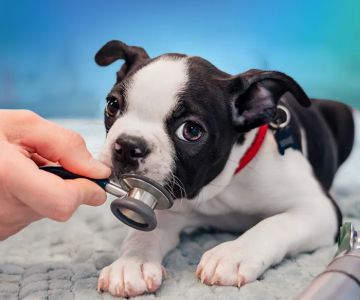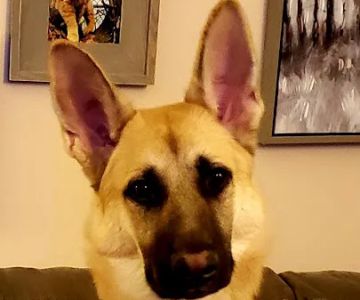Is Veterinary Diet Food Good for Cats? Benefits, Types, and Considerations
When it comes to your beloved feline’s health, nutrition plays a critical role. As a cat owner, you want the best for your pet, and choosing the right food is essential. You may have heard of veterinary diet food for cats, but is it really necessary? In this article, I will explore the benefits, types, and important considerations of veterinary diet food and help you decide if it’s a good fit for your cat.
1. What is Veterinary Diet Food for Cats?
Veterinary diet food is specialized food formulated to meet the nutritional needs of cats with certain medical conditions or health concerns. Unlike regular pet food, veterinary diet food is specifically designed to manage issues such as kidney disease, diabetes, obesity, or urinary tract problems. These diets are often prescribed by veterinarians to help improve the quality of life for cats with specific health challenges.
These foods come in various forms, including dry kibble, wet food, and even treats. They are typically made with ingredients and nutrient levels tailored to the cat’s condition, ensuring that they receive the right amount of protein, fiber, and other nutrients to support their health.
2. Types of Veterinary Diet Food for Cats
Veterinary diets are available for a range of conditions. Here are some common types:
2.1. Diet for Urinary Tract Health
Urinary tract infections and kidney stones are common issues for cats. Veterinary diets designed for urinary health help balance the pH of urine and promote healthy kidney function. These foods are typically low in magnesium and other minerals that can contribute to urinary crystals.
2.2. Diet for Weight Management
If your cat is overweight or obese, a specialized weight management diet can help them lose weight safely. These diets are typically higher in fiber to promote satiety and help control hunger. They also often contain fewer calories to ensure that your cat loses weight at a healthy rate.
2.3. Diet for Digestive Health
Some cats suffer from digestive issues such as vomiting or diarrhea. There are specialized diets that help with gastrointestinal health by providing easily digestible proteins and prebiotics to support the gut. These diets help reduce inflammation and promote a healthy digestive system.
3. Benefits of Veterinary Diet Food for Cats
Veterinary diet food can offer a number of benefits, especially if your cat is struggling with specific health issues. Here are some reasons why veterinary diets are beneficial:
3.1. Specialized Nutrition
One of the biggest benefits of veterinary diet food is that it offers specialized nutrition designed to meet the specific needs of cats with health issues. This ensures that they are receiving the right balance of nutrients to help manage their condition and improve their quality of life.
3.2. Better Disease Management
For cats with chronic conditions such as kidney disease, diabetes, or urinary problems, a veterinary diet can help manage the disease. These foods can help reduce symptoms, improve organ function, and slow the progression of the disease, which is crucial for prolonging your cat’s life and maintaining its comfort.
3.3. Weight Control
Veterinary diet foods designed for weight control help reduce the risk of obesity-related conditions like diabetes and arthritis. By managing your cat’s weight, you can reduce stress on its joints and organs and increase its overall lifespan.
4. Is Veterinary Diet Food Right for My Cat?
As a cat owner, you might be wondering if veterinary diet food is right for your feline friend. The answer depends on several factors:
4.1. Consult a Veterinarian
Before switching your cat to a veterinary diet, it’s essential to consult with a veterinarian. They can evaluate your cat’s health and recommend the best course of action. Your vet can determine whether your cat has a condition that would benefit from a specialized diet.
4.2. Specific Health Conditions
If your cat has been diagnosed with a medical condition such as kidney disease, diabetes, or gastrointestinal issues, a veterinary diet may be necessary to manage the condition. These diets are formulated to provide the correct balance of nutrients that are essential for managing the condition.
4.3. Holistic Approach to Health
Veterinary diet food is just one part of a holistic approach to maintaining your cat’s health. In addition to feeding a specialized diet, regular veterinary check-ups, proper hydration, and a clean, comfortable environment are also critical in maintaining your cat’s well-being.
5. Popular Brands of Veterinary Diet Food
Several trusted pet food brands offer veterinary diet options. Some of the most well-known include:
- Hill’s Prescription Diet
- Royal Canin Veterinary Diet
- Purina Pro Plan Veterinary Diets
- Science Diet
Each of these brands provides specialized food tailored to your cat’s health needs. You can find options for urinary health, digestive health, weight management, and more.
6. How to Choose the Right Veterinary Diet Food for Your Cat
Choosing the right veterinary diet food for your cat can be overwhelming, especially with the variety of options available. Here are a few tips to help you make an informed decision:
6.1. Work with Your Veterinarian
As mentioned earlier, it’s essential to work with your veterinarian to choose the best food for your cat. They can help you understand your cat’s specific nutritional needs based on its health condition.
6.2. Consider Your Cat’s Preferences
Some cats can be picky eaters. If your cat has a preference for wet or dry food, it’s important to choose a diet that aligns with their preferences to ensure they eat it regularly.
6.3. Monitor Your Cat’s Health
Once you start your cat on a veterinary diet, monitor its health closely. Keep an eye on its weight, coat condition, and overall energy levels. If you notice any changes, contact your veterinarian for advice.
7. Where to Buy Veterinary Diet Food
You can purchase veterinary diet food from various retailers, both in-store and online. Some of the most popular places to buy include:
- Your local veterinary clinic
- Online pet food retailers like Chewy and Petco
- Specialty pet stores
When purchasing veterinary diet food, be sure to check that it’s the right type for your cat’s condition and ensure that you’re buying from a trusted retailer to ensure product quality.
Ultimately, choosing the right diet for your cat is one of the most important decisions you can make for its health. By choosing a veterinary diet when necessary, you can help manage your cat’s health condition, improve its quality of life, and ensure that it stays happy and healthy for years to come. Remember, always consult with your veterinarian before making any dietary changes for your pet.











